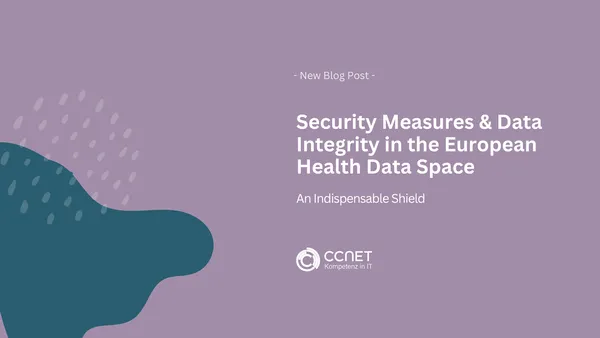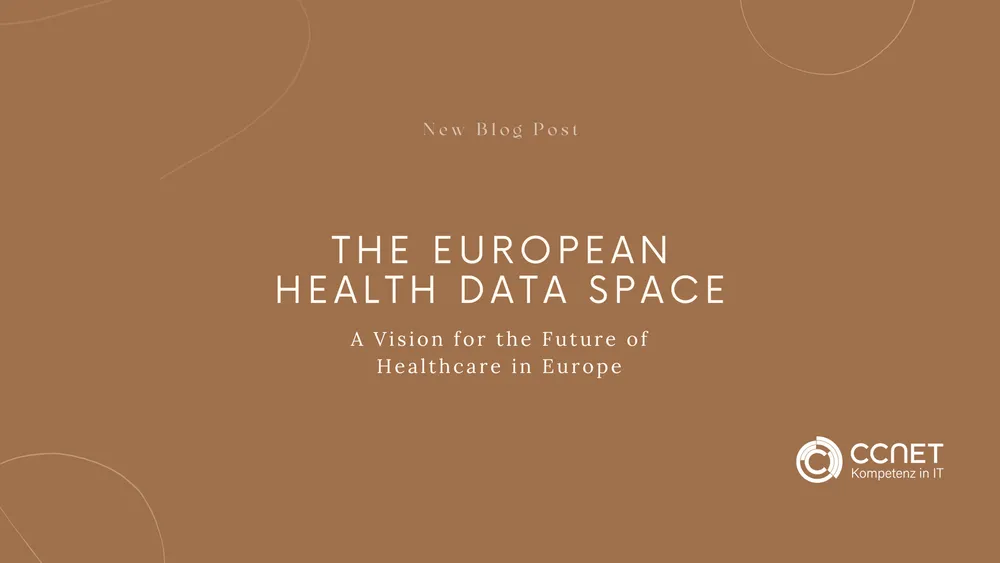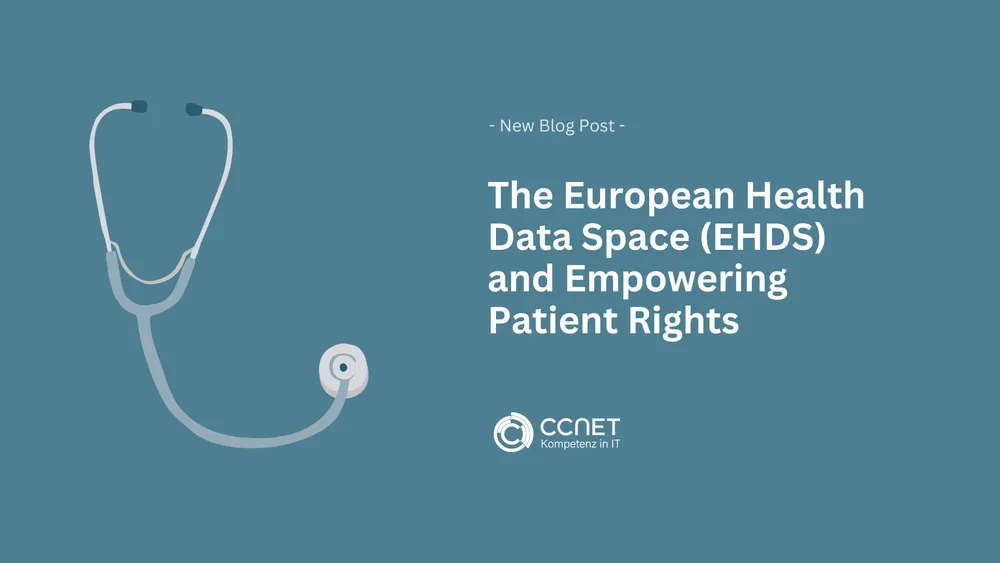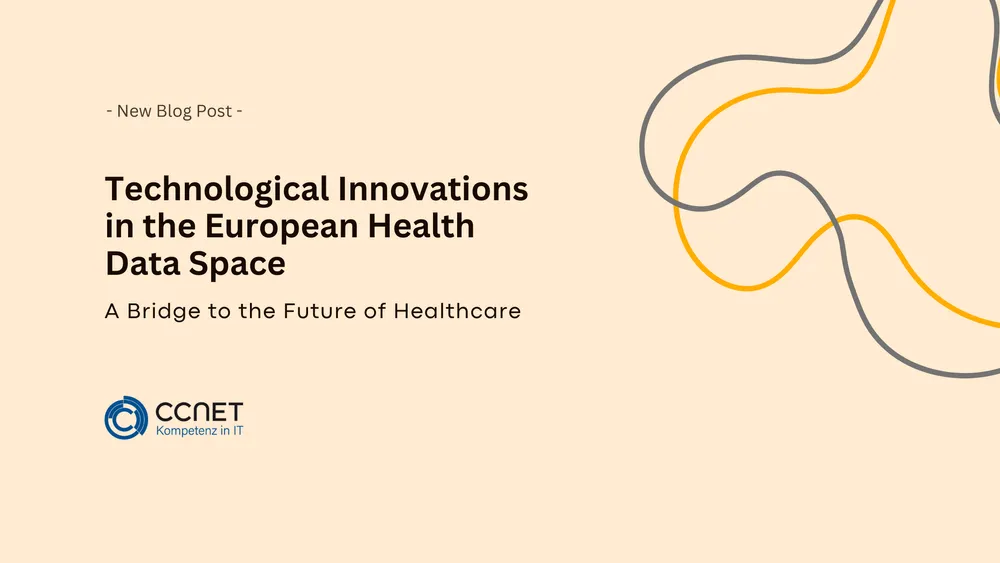
CCNet
Sep 9, 2024 • 2 min read

Security Measures and Data Integrity in the European Health Data Space: An Indispensable Shield
The European Health Data Space (EHDS) represents significant progress in the handling of health data within the European Union (EU). Alongside improving cross-border access and exchange of health data, EHDS places special emphasis on security measures and preserving data integrity. This blog post examines the importance of these security measures and how they contribute to strengthening citizens' trust in the EU healthcare system and laying the groundwork for an innovative and secure digital healthcare landscape.
Further information can be found here: IT-infrastructure-hardening
The Pillars of Data Security in EHDS
EHDS marks a paradigm shift not only in the availability and usability of health data but also in their protection. To ensure data security and integrity, EHDS has implemented comprehensive security protocols and standards based on the highest available technologies and best practices. These include:
- Encryption Techniques: All data transmitted or stored within EHDS is protected by strong encryption methods. This ensures that even in the event of a data breach, the information cannot be read or abused by third parties.
- Access Controls and Authentication: EHDS relies on stringent access controls to ensure that only authorized individuals have access to sensitive health data. Multi-factor authentication and regular access permission reviews are standard procedures to prevent unauthorized access.
- Regular Security Audits: To proactively identify and mitigate security risks, EHDS conducts regular security audits. These audits help to identify and address vulnerabilities promptly.
- Privacy by Design: EHDS follows the principle of privacy by design and default, meaning that privacy measures are integrated into the development of digital health solutions from the outset. This ensures that privacy protection and data integrity are not an afterthought but an integral part of the system.
The Importance of Security Measures and Data Integrity
The security measures in EHDS have far-reaching implications for all stakeholders in the healthcare system. For citizens, this means a higher level of trust in digital healthcare services, as they can rely on the protection of their sensitive health information. For medical professionals and researchers, these security measures enable secure access to and use of data, essential for providing high-quality patient care and conducting meaningful scientific research.
Challenges and Future Developments
Despite the extensive security measures, EHDS and its participants face ongoing challenges. Cyber threats are constantly evolving, and EHDS systems must adapt to keep pace. Continuous staff training, strengthening cybersecurity infrastructure, and promoting cyber hygiene are crucial to ensuring the security of health data.
Additionally, implementing security protocols at the EU level requires close collaboration between member states to ensure consistent and effective protection measures across borders. The future is likely to see an even stronger emphasis on innovative security technologies such as blockchain and artificial intelligence (AI) to further enhance the security and integrity of health data.
Conclusion
The security measures and preservation of data integrity in the European Health Data Space are invaluable for creating a secure, trustworthy, and efficient digital healthcare ecosystem in the EU. By setting high security standards, EHDS paves the way for a future where health data is not only freely flowing but also comprehensively protected. For citizens, researchers, and healthcare providers alike, EHDS thus forms an indispensable shield in the digital healthcare landscape.


